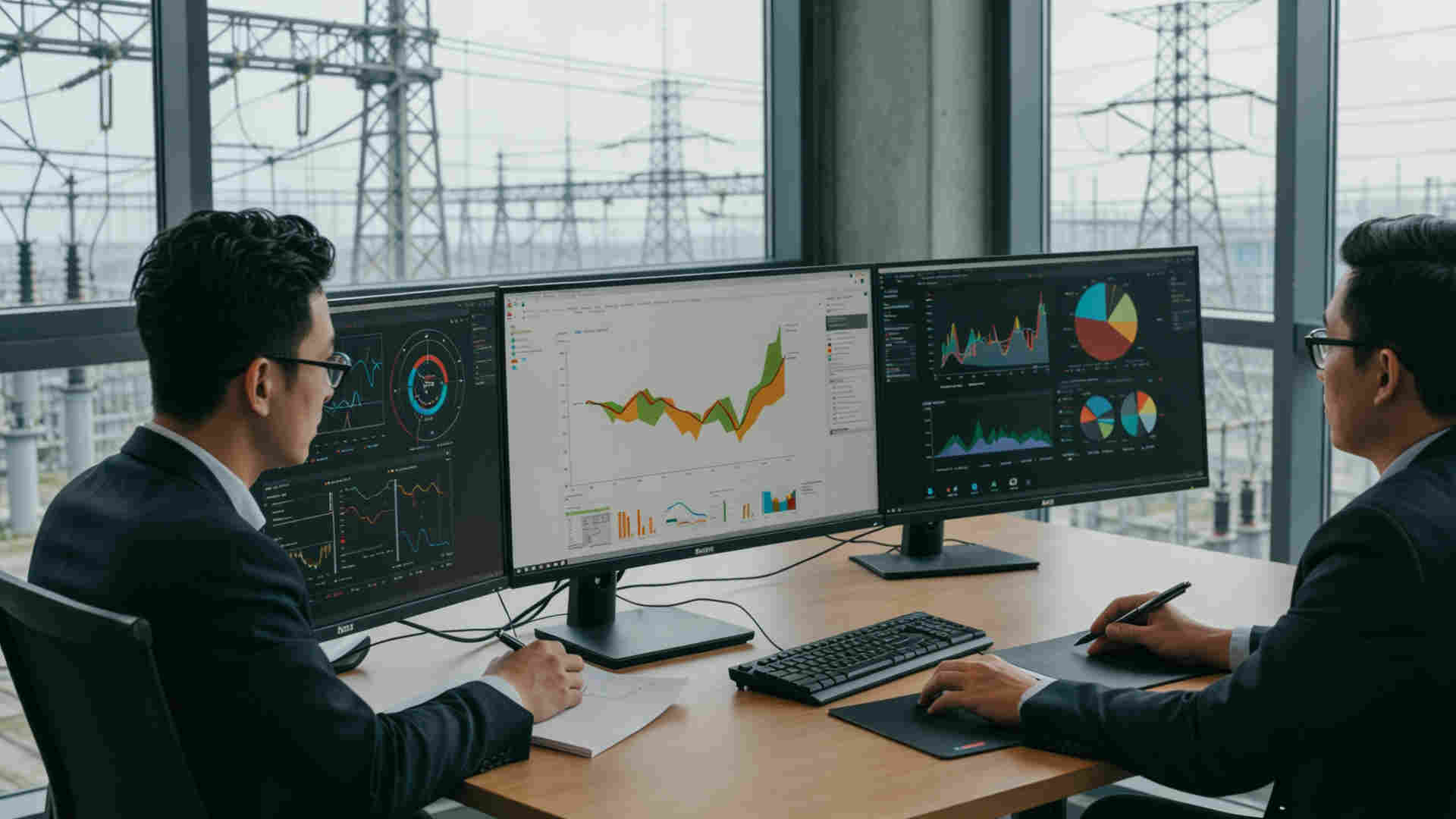The utility industry, or more specifically, the electricity sector is no stranger to volatile conditions. Factors like unpredictable weather conditions or time of the day can significantly influence energy demands, which often leads to instability.
Smart meters for energy tracking were built with the central motive to curb this aspect of instability that resides within the energy industry. Advancements in industry 4.0 and increased implementation of IoT devices in recent years, and combined with the need for enterprises to move towards sustainable practices, the adoption of smart meters has witnessed quite a surge. In fact, smart meters accounted for 43% of the global electricity meter market by the end of 2023.
Sectors like electricity which are prone to fluctuations require data that is accurate and highly-relevant. This is critical for informed decision making, quick resolution of issues as well as long term enterprise planning. Service providers understand that the data is constantly changing and instances of outdated information often leads to increased costs, inefficient resource allocation and equipment failure due to outages.
In this blog, we will explore the benefits of real-time data via smart meters in energy grids. Before that, let us understand how the information gathered from smart meters is different from the traditional meter data.
Traditional Meter Data vs Smart Meter Data
Driven by the prospect of electricity grid modernization and the multiple benefits that come along with it, it is no surprising that smart meters are fast replacing traditional meters. In the UK alone, 32.4 million smart meters were running across homes in march 2023, accounting for 57% of all meters. Recent studies have shown that installation of smart meters lead to an average savings of 3.4% compared to traditional meters for electricity service providers.
Generally, traditional meters measure the electricity consumption amount once every month. This inability to record data in real time impacts the ability to create strong demand response programs or offer dynamic pricing to consumers. Additionally, readings for traditional meters are done manually by workers, mostly via on-site visits. As a result, there is no detailed insight into the consumers’ energy consumption patterns. Also, one should not overlook the fact that manual meter reading is highly prone to errors and labor-intensive, draining their resources.
Smart meters, on the other hand, gather and transmit data without interruption in real time. Service providers are able to monitor usage patterns and monitor the grid more effectively and prompting faster responses to escalations. Moreover, smart meters can measure electricity consumption patterns every 10-15 minutes, providing a comprehensive insight into usage, trends and peak demand times.
The ability of smart meters to provide real-time data on energy consumption enables service providers to experience a host of benefits. Let us explore some of them in the next section.
Benefits of Smart Meter Real-Time Data
As electricity companies continue to navigate through the zig zags and complexities of the energy industry, real time data via smart meters have proved to be a game changer.
Decreased Response Times
A key feature of smart meters is that the data can be accessed remotely by the operations team. Utility providers can get hold of any changes in meter data on the go, enabling faster responses whenever any discrepancies occur. A utility service provider in the US was able to reduce outage response times by at least 15% after integrating smart meters into the AMI.
Granular Insights into Consumption Patterns
Smart meters not only gather but can also transmit energy usage data at intervals of 15 minutes or even less. This allows teams to get detailed insights into real-time consumption trends across regions, or even consumers which was previously impossible with traditional meters. With a magnified view into everyday energy usage, consumers are provided with an opportunity to optimize their electricity utilization practices and improve their savings. In the UK, individual homes were able to reduce their electricity costs by 3% on average after installing smart meters.
Transparent Billing Processes
One of the standout features of installing smart meters is accurate billing since it completely eliminates the need for estimated bills. Customers are much more aware about their energy consumption patterns, like being able to identify load peaks for high electricity bills. This also brings down the number of complaints by a significant margin. A consumer centric energy project in India across six states reported a 50% increase in billing data after making the transition to smart meters.
Grid Health Monitoring and Preventive Maintenance
With real-time data at their fingertips, utility companies can monitor the health of the grid infrastructure by analyzing data from smart grid devices and sensors. This approach enables them to take actions against potential issues like outages or machine downtime even before they occur, reducing maintenance costs and improving asset lifecycle. For instance, data from smart grid devices can highlight any transformer which is not operating at its full capacity, allowing them to redistribute the load to other transformers. As a result, utility companies are able to bring down the costs which would be otherwise spent on equipment upgrades.
Demand Forecasting
From a business perspective, smart meters allow better planning and forecasting of energy demands for both commercial and industrial consumers. The real-time information of the above mentioned customers to analyze their usage patterns and predict future requirements with greater agility. As they are able to plan their energy needs better, the margin for surcharges or electricity shortages can be largely avoided. Additionally, the data allows customers to identify any pilferage for quick redressal of energy waste issues, leading to more efficient and streamlined processes.
Conclusion
The Utility Service Provider (USP) industry was once viewed as a traditionalist sector that did not give in to new technological disruptions. Today, that is no longer the case as it has established itself as a leading adopter of digital transformation strategies. The statement holds true especially for nations that want to make the most of the benefits that come with integrating smart meters into energy grids. Take India for example, where the government has undertaken a massive project of rolling out 250 million smart meters with a goal to save Rs 11 trillion in costs.
With new technological trends like AI taking over industries, the future for smart metering projects looks exciting. AI could learn to track consumption habits and automate energy usage for consumers with the data collected from smart meters. It is a future which is one of increased connectivity, greater automation and the journey towards more sustainable energy grids.




.jpg)
.jpg)






